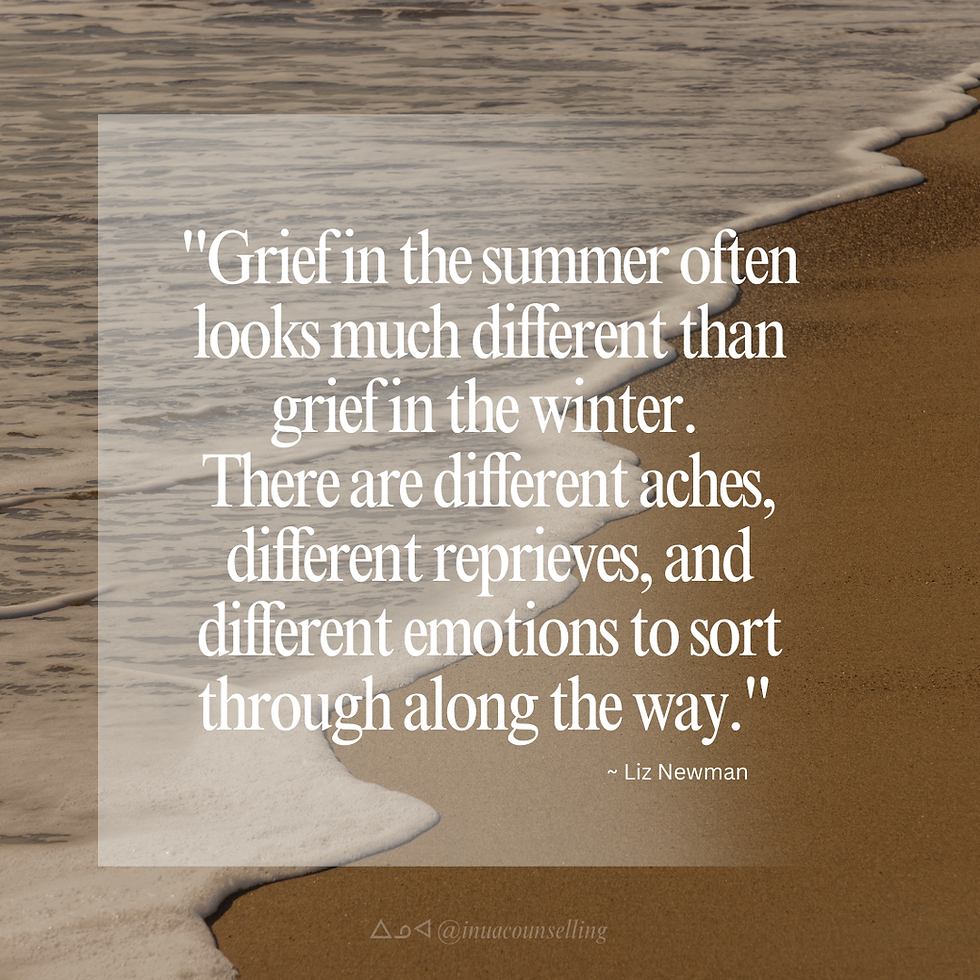The Problem With "Stay Strong."
- Mackenzie Broomfield

- Aug 27
- 3 min read
“Let’s stop telling people to be strong.” ~ Mackenzie Broomfield, Medical Social Worker & End-of-Life Doula
How often have we reached for those words - "Be strong," "Stay strong," or "You're so strong" - in moments when someone is hurting, grieving, or facing the unimaginable? We mean well. We want to offer comfort. But these phrases, as common as they are, can be quietly heavy for the person on the receiving end.
As a medical social worker and end-of-life doula, I have witnessed countless people navigating the raw terrain of dying, caregiving, and loss. And I have learned this: strength is not the goal. Presence is. And permission - to feel, fall apart, question, and grieve - is the gift.
The Problem with “Stay Strong”
When someone is living through a terminal diagnosis, caring for a dying loved one, or mourning a profound loss, being told to "stay strong" can feel like being asked to mask their pain. The problem with stay strong is that it may unintentionally suggest:
Don’t cry.
Don’t burden others.
Don’t fall apart.
Don’t be real.
But the truth is - grief is falling apart. Facing death, whether our own or someone else's, can shatter everything we thought we knew about life. People in these moments do not need to hear that they’re strong. They need to know they’re allowed to not be.
When We Say “You’re So Strong”…
It might seem like a compliment. But for many, it’s isolating. They may hear:
“I can’t tell you how I really feel, or you’ll think I’m not strong anymore.”
“I’m afraid to show my fear, sadness, or anger.”
“I have to keep it together so others aren’t uncomfortable.”
I have sat beside people who felt exhausted by the pressure to perform resilience; people who have said things like, “Everyone keeps telling me I’m strong, but I’m not. I’m just surviving.”
And I have seen it up close in my own life.
When my child was going through medical treatments, they would often feel upset when someone told them, “You’re so strong.” For them, there wasn’t a choice. It was either go through treatment - or die. It didn’t feel like strength. It felt like survival. Or endurance. Or just... doing what had to be done. Those words, while meant as encouragement, felt more like pressure than support.
What Can We Say Instead?
Instead of asking someone to be strong, let’s offer words that acknowledge their humanity and hold space for their full emotional range:
“I’m here for whatever you need - tears, silence, rage, or anything else.”
“You don’t have to be strong for me.”
“It’s okay to feel everything you’re feeling.”
“I’m not here to fix anything. I just want to be with you in it.”
Strength Isn’t Stoicism
True strength is not suppressing grief, fear, or vulnerability. It is allowing those feelings to exist without shame. It is collapsing into a friend’s arms, sobbing through a hospice visit, screaming into a pillow, questioning everything...and then waking up to face it all again tomorrow.
In my work, I have seen strength redefined: a caregiver asking for help; a dying person saying what needs to be said; a loved one sitting in silent vigil, knowing there are no right words.
Let’s Normalize the Unstrong
Let’s make space for the messy, sacred, and deeply human experience of end-of-life and grief. Let’s replace “Be strong” with “Be honest.” Let’s meet people where they are, not where we wish they could be.
And maybe most importantly: let’s allow people the dignity of being exactly as they are, in whatever state they are in.
They don’t need to be strong. They just need to be held.

©2025 All rights reserved. Inua ᐃᓄᐊ Counselling & Support Services. Generated with the help of AI.






Comments